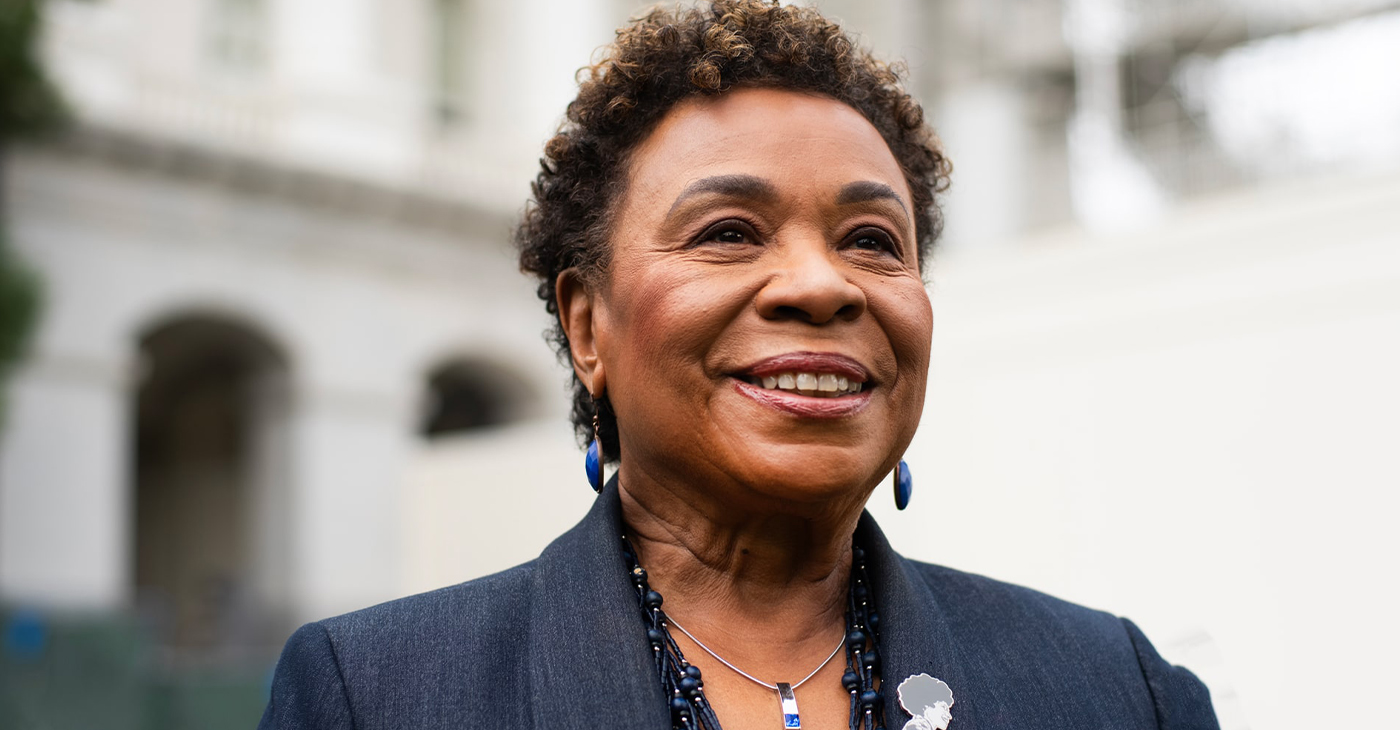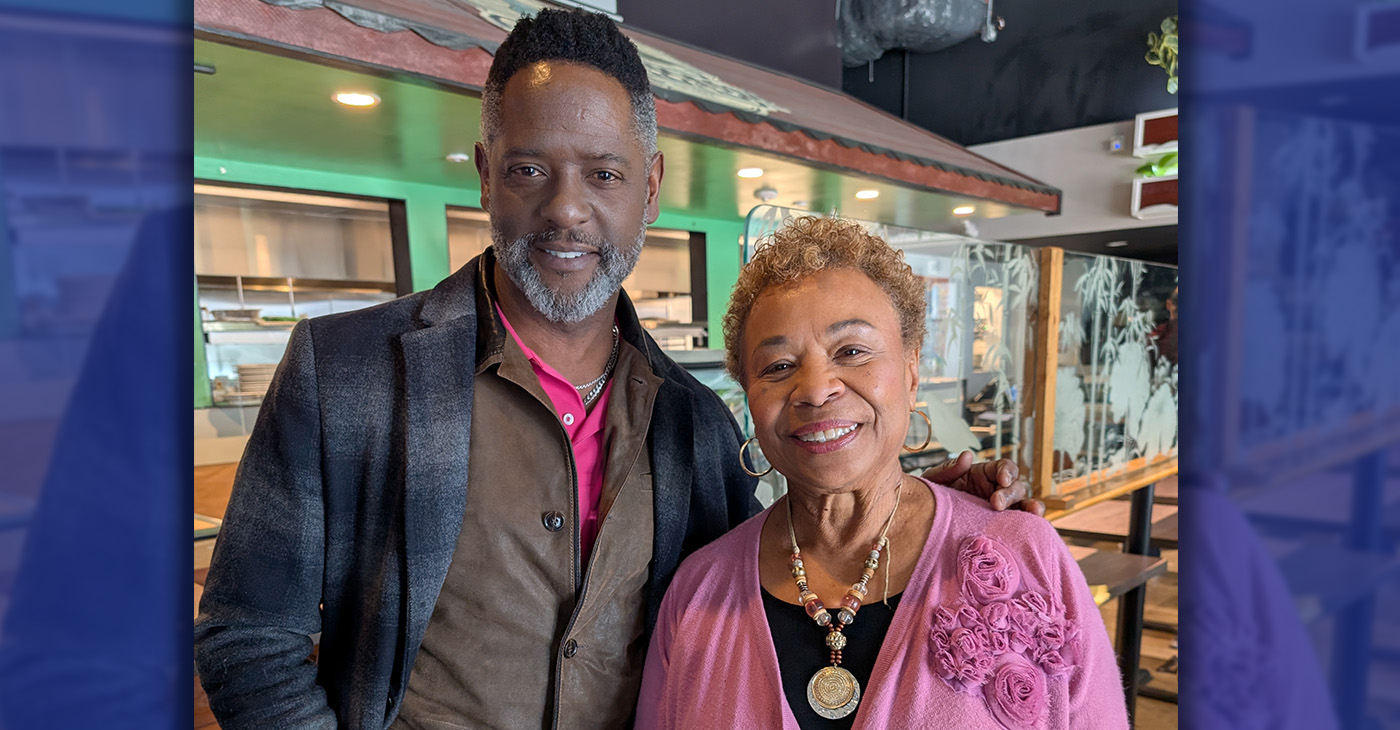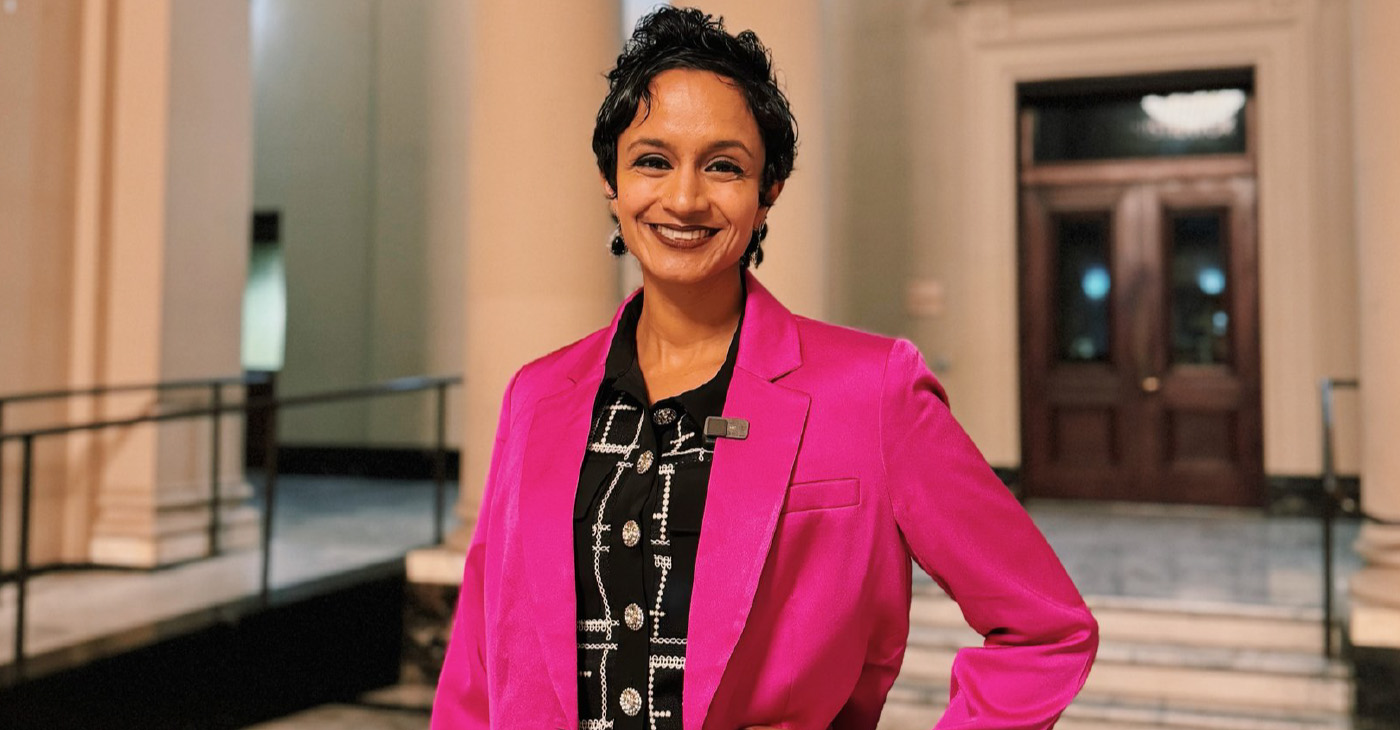Op-Ed
Baltimore is Not Ferguson
By George E. Curry
NNPA Columnist
Baltimore is not Ferguson. That was evident by opposite official reactions to the death of an unarmed African American male killed at the hands of local police in the respective cities. At the time of Michael Brown’s death last year in Ferguson, Mo., the city with a two-thirds Black majority was governed by a White mayor and a White city manager, had only one Black on the 6-member city council, and had a White police chief who directed a department that was 94 percent White. Equally telling, less than 12 percent of voters turned out to cast a ballot in 2014.
Though also predominantly Black – 63.7 percent – Baltimore has a Black mayor, police commissioner, state’s attorney and president of a city council that is 60 percent African American. The police force is 48 percent Black.
After the death of 18-year-old Michael Brown in Ferguson, St. Louis County Prosecutor Robert P. McCulloch mangled his grand jury presentation – perhaps deliberately – that resulted in the grand jury’s decision not to indict Officer Darren Wilson, the White officer who fatally shot Michael Brown.
As the New York Times pointed out, the St. Louis County Prosecutor strayed from customary behavior by, among other things:
• Convening the grand jury for 25 days over three months instead of the usual one;
• Calling 60 witnesses, possibly confusing jurors, instead of only a few that are usually called;
• Allowing Wilson to testify for four hours, without being cross-examined, though most potential defendants do not usually testify before a grand jury and
• Taking the unusual step of not making a recommendation to the grand jury.
So, no one was surprised that the jury of nine Whites and three Blacks voted not to indict Darren Wilson.
In Baltimore, things were different. First, voters had ousted the incumbent state attorney by electing Marilyn J. Mosby over Gregg L. Bernstein in the Democratic primary. Though on the job less than four months, the 35-year-old Mosby made the courageous decision to charge six Baltimore police officers with crimes that included murder and manslaughter instead of conveniently shifting that responsibility to a grand jury.
Mosby made her decision several hours after receiving the medical examiner’s report that concluded that Gray’s death was a homicide.
At a news conference, she said: “The findings of our comprehensive, thorough and independent investigation, coupled with the medical examiner’s determination that Mr. Gray’s death was a homicide that we received today, has led us to believe that we have probable cause to file criminal charges.”
She also said, “To the people of Baltimore and the demonstrators across America: I heard your call for ‘No justice, no peace.’ Your peace is sincerely needed as I work to deliver justice on behalf of this young man.”
Shortly after Mosby announced her decision, Mayor Stephanie Rawlings-Blake, also an African American, said she was “sickened and heartbroken” by the charges outlined by Mosby. She said, “To those of you who want to engage in brutality, misconduct, racism and corruption, let me be clear: There is no place for you in the Baltimore City Police Department.”
The fact that Rawlings-Blake and Mosby were in a position to act boldly was possible only because Black voters put them in office. You can’t reasonably hope for that kind of outcome when only 12 percent of the voters turn out for an election, which was the case in Ferguson.
But don’t get it twisted: Having Blacks in office or voting in large numbers do not guarantee justice will be done. Blacks vote in respectable numbers in New York City yet the White officer, David Pantaleo, was never prosecuted in the choking death of Eric Garner.
In Baltimore, the state’s attorney’s investigation revealed that many of the early assertions made by the police department, under the supervision of Black Police Commissioner Anthony Batts were inaccurate. Even worse, of the six officers charged, three of them – Sgt. Alicia White and Officers William Porter and Caesar Goodson, Jr. – are African American.
Goodson faces the most serious charges of second-degree murder and involuntary manslaughter. He was driving the van that transported Gray and was accused of not placing the suspect in a seatbelt for his safety.
Porter was told twice that Gray was in need of a medic, but never called one, according to the prosecutor. He was charged with involuntary manslaughter, second-degree assault and other charges. White arrived on the scene after Gray had been placed in the police van. But she, too, was accused of failing to summon a medic. She was charged with involuntary manslaughter, second-degree assault and misconduct in office.
The other officers – Edward Nero, Garrett Miller and Lt. Brian Rice – were charged with, among other things, second-degree assault.
Clearly, having Blacks in key positions is no guarantee that justice will be served. But it certainly increases the odds of that happening, as we have seen in Baltimore.
George E. Curry, former editor-in-chief of Emerge magazine, is editor-in-chief of the National Newspaper Publishers Association News Service (NNPA) and BlackPressUSA.com. He is a keynote speaker, moderator, and media coach. Curry can be reached through his Web site, www.georgecurry.com. You can also follow him at www.twitter.com/currygeorge and George E. Curry Fan Page on Facebook. See previous columns at http://www.georgecurry.com/columns.
###
Activism
Oakland Post Endorses Barbara Lee
Barbara Lee will be able to unify the city around Oakland’s critical budget and financial issues, since she will walk into the mayor’s office with the support of a super majority of seven city council members — enabling her to achieve much-needed consensus on moving Oakland into a successful future.

As we end the celebration of Women’s History Month in Oakland, we endorse Barbara Lee, a woman of demonstrated historical significance. In our opinion, she has the best chance of uniting the city and achieving our needs for affordable housing, public safety, and fiscal accountability.
As a former small business owner, Barbara Lee understands how to apply tools needed to revitalize Oakland’s downtown, uptown, and neighborhood businesses.
Barbara Lee will be able to unify the city around Oakland’s critical budget and financial issues, since she will walk into the mayor’s office with the support of a super majority of seven city council members — enabling her to achieve much-needed consensus on moving Oakland into a successful future.
It is notable that many of those who fought politically on both sides of the recent recall election battles have now laid down their weapons and become brothers and sisters in support of Barbara Lee. The Oakland Post is pleased to join them.
Activism
Actor, Philanthropist Blair Underwood Visits Bay Area, Kicks Off Literacy Program in ‘New Oakland’ Initiative
These community activations were coordinated with the San Francisco-based non-profit program “Room to Read.” Ray said he is also donating his time to read and take pictures with students to encourage their engagement and to inspire them to read more. The inspirational book “Clifford Ray Saves the Day” highlights Clifford Ray’s true story of saving a dolphin.

By Paul Cobb
New Oakland Series
Opinion Part 3
The Post mentioned three weeks ago that a number of our local luminaries were coming together to support the “New Oakland” movement. As this current national administration continues to eliminate our “legacy” institutional policies and programs left and right, most communities find themselves beyond “frozen” in fear.
Well, esteemed actor, long-time Bay Area supporter, and philanthropist Blair Underwood returned to Oakland this week to speak with city leaders, community trust agents, students, the Oakland Post, and local celebrities alike to continue his “New Oakland” initiative.
This week, he kicked off his “Guess Who’s Coming to Read” literacy program in some of Oakland’s middle schools. Clifford Ray, who played the center position of the 1975 World Champion Golden State Warriors, donated close to 1,000 books. Ray’s fellow teammate Charles “The Hopper” Dudley also gave Converse sneakers to students.
These community activations were coordinated with the San Francisco-based non-profit program “Room to Read.” Ray said he is also donating his time to read and take pictures with students to encourage their engagement and to inspire them to read more. The inspirational book “Clifford Ray Saves the Day” highlights Clifford Ray’s true story of saving a dolphin.
Underwood also spent quality time with the Oakland Ballers ownership group and visited the amazing Raimondi Park West Oakland community revitalization site. In the 1996 TV film Soul of the Game, Underwood played the role of the legendary first Black Major League Baseball player Jackie Robinson and commended the Ballers owners.
“This group of sports enthusiasts/ philanthropists needs to be applauded for their human capital investment and their financial capital investment,” Underwood said. “Truly putting their money and passion to work,” Underwood said.
Underwood was also inspired by mayoral candidate Barbara Lee’s open-minded invitation to bring public-private partnership opportunities to Oakland.
Underwood said he wants to “reinforce the importance of ‘collaborative activism’ among those most marginalized by non-empathic leadership. We must ‘act out’ our discomfort with passionate intentions to create healthy change.”
Activism
Councilmembers Ramachandran, Kaplan, Unger Identify Funds to Save Oakland Fire Stations
Our budget crisis – one of the worst in Oakland’s history – is compounded by the fact that people do not feel safe coming to Oakland due to our public safety crisis. By investing in our fundamental public safety resources today, we can send a signal to the world that Oakland is open for business. We have such a rich and vibrant culture, arts, and food scene that is worth celebrating – but we can only showcase this if we are able to keep our neighborhoods safe. Having fully functioning fire stations are absolutely essential to these efforts.

By Janani Ramachandran
There is no greater concern to the people of Oakland today than public safety. Fire stations are the bread and butter of essential city services – and every day that we have stations shuttered, we imperil the lives of our community members. In response to widespread outcry over the current and planned closure of stations, myself, along with Councilmembers Kaplan and Unger, have painstakingly worked to identify millions of dollars of new funding to save our stations. The legislation we introduced on Thursday, February 13th, will amend our budget to prevent the closure of four fire stations that are currently on the chopping block due to our budget crisis and will re-open two closed stations that have already been closed – Station 25 and 28 – in the near future. The resolution that will provide the funding to keep our stations open will go before the full City Council for a vote at our meeting on Tuesday, March 4th at 3:30 PM – and we invite you to join us at City Hall to share your perspective on the topic.
Our budget crisis – one of the worst in Oakland’s history – is compounded by the fact that people do not feel safe coming to Oakland due to our public safety crisis. By investing in our fundamental public safety resources today, we can send a signal to the world that Oakland is open for business. We have such a rich and vibrant culture, arts, and food scene that is worth celebrating – but we can only showcase this if we are able to keep our neighborhoods safe. Having fully functioning fire stations are absolutely essential to these efforts.
With the devastating Los Angeles fire at the top of people’s minds, terrible memories of Oakland’s own wildfires are re-surfacing from the 1991 Oakland Hills Firestorm to the Keller fire just a few months ago – and how essential fire stations are to mitigating these catastrophes. But in Oakland, our fire stations don’t just fight wildfires – they also provide emergency medical services to our most vulnerable constituents, put out structural fires and encampment fires, and much more.
We recognize that there are a number of competing interests and important initiatives fighting for sparse City resources. But from my perspective, core safety services are the most pivotal functions that a City must spend its resources on – especially given the outcry we have heard around fire stations.
The fight to save our stations is not over. The resolution we introduced is a critical first step, and there are hurdles to overcome. If you support keeping our fire stations open, we invite you to be a part of the solution by making your voice heard at the March 4th City Council meeting at 3:30 pm.
-

 Activism4 weeks ago
Activism4 weeks agoOakland Post: Week of April 9 – 15, 2025
-

 Activism2 weeks ago
Activism2 weeks agoAI Is Reshaping Black Healthcare: Promise, Peril, and the Push for Improved Results in California
-

 Activism3 weeks ago
Activism3 weeks agoOakland Post: Week of April 16 – 22, 2025
-

 Activism2 weeks ago
Activism2 weeks agoNewsom Fights Back as AmeriCorps Shutdown Threatens Vital Services in Black Communities
-

 Activism2 weeks ago
Activism2 weeks agoBarbara Lee Accepts Victory With “Responsibility, Humility and Love”
-

 Activism2 weeks ago
Activism2 weeks agoFour Bills Focus on Financial Compensation for Descendants of Enslaved People
-

 Activism2 weeks ago
Activism2 weeks agoFaces Around the Bay: Author Karen Lewis Took the ‘Detour to Straight Street’
-

 Activism2 weeks ago
Activism2 weeks agoTeachers’ Union Thanks Supt. Johnson-Trammell for Service to Schools and Community















































